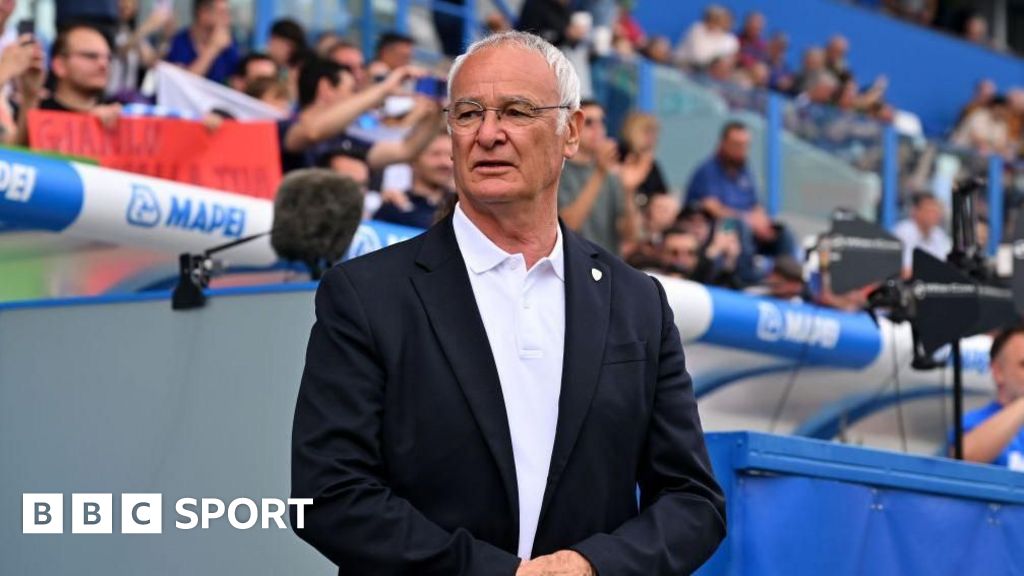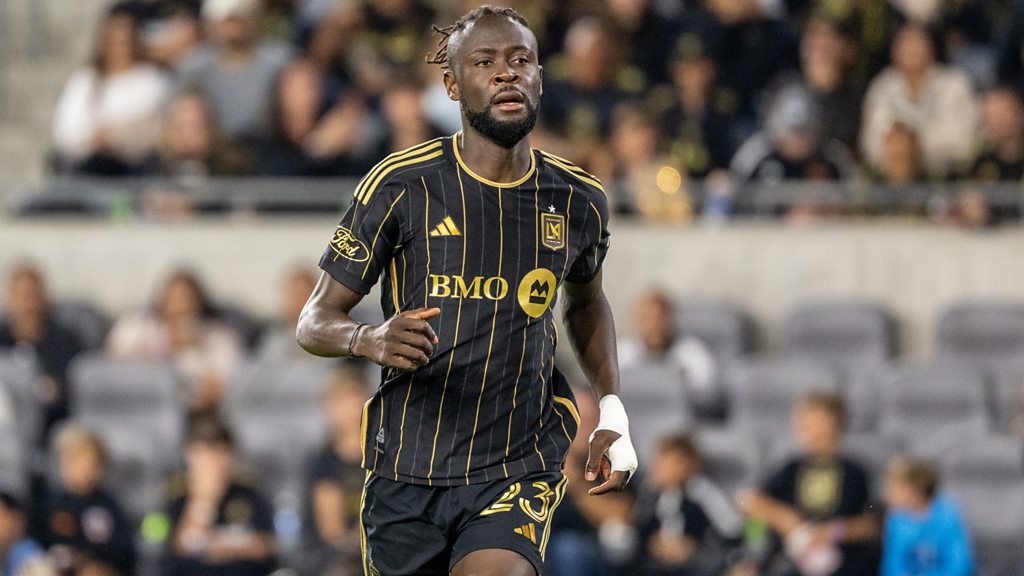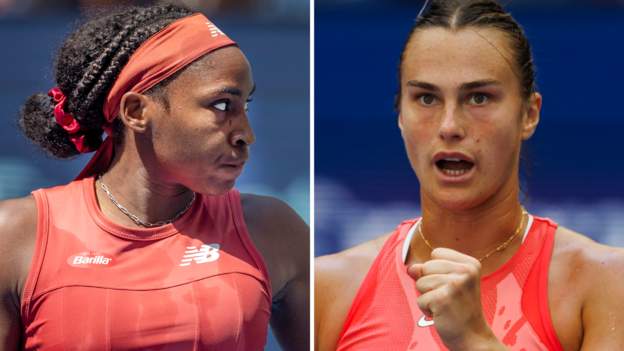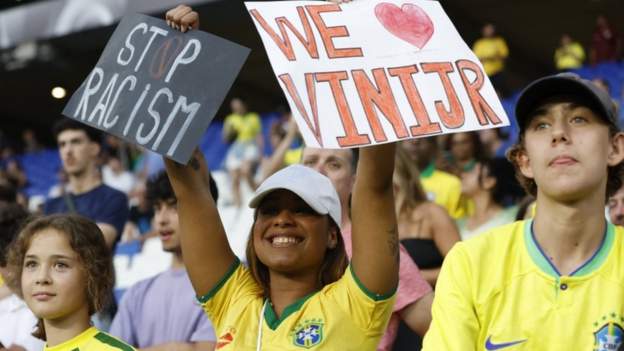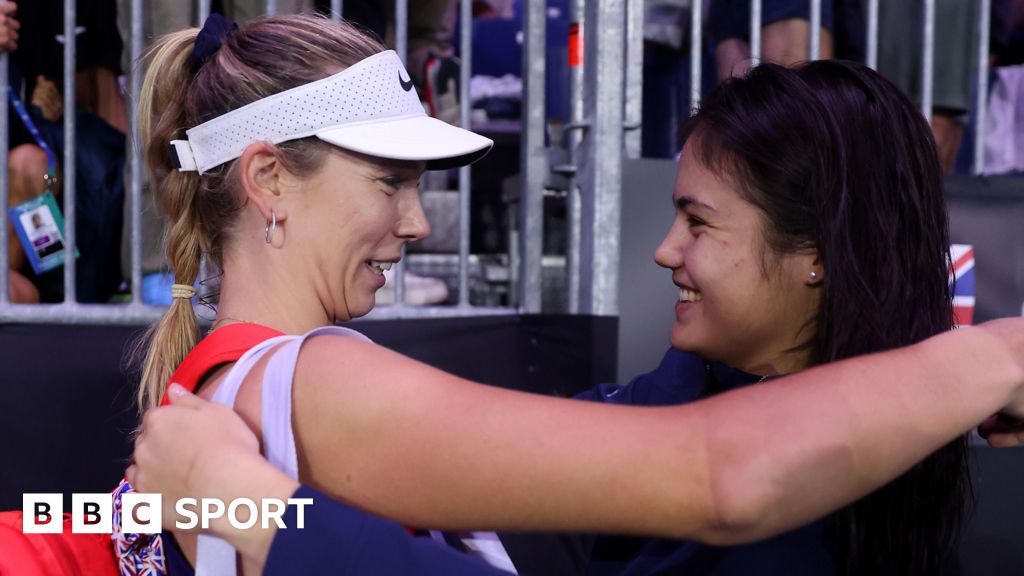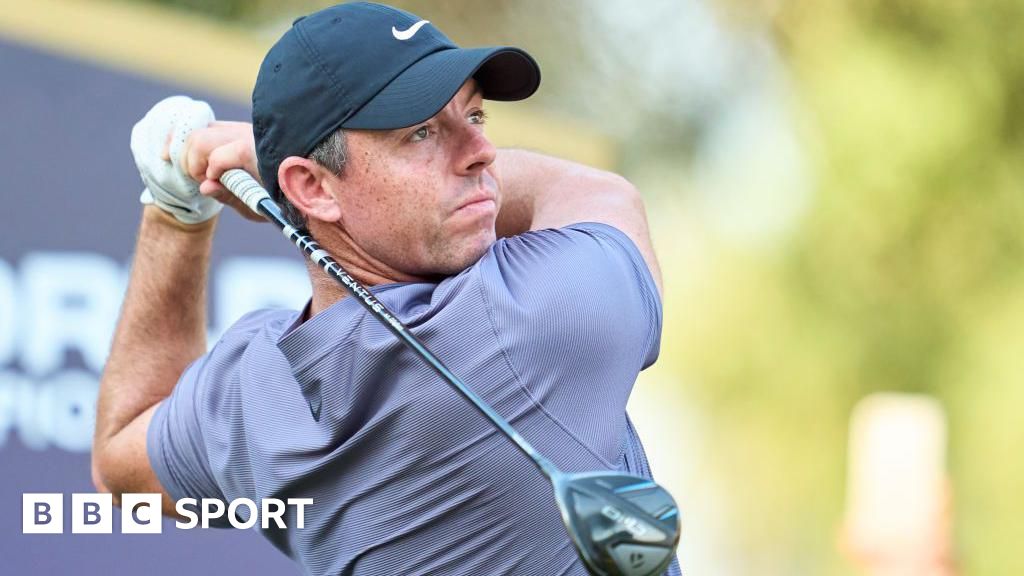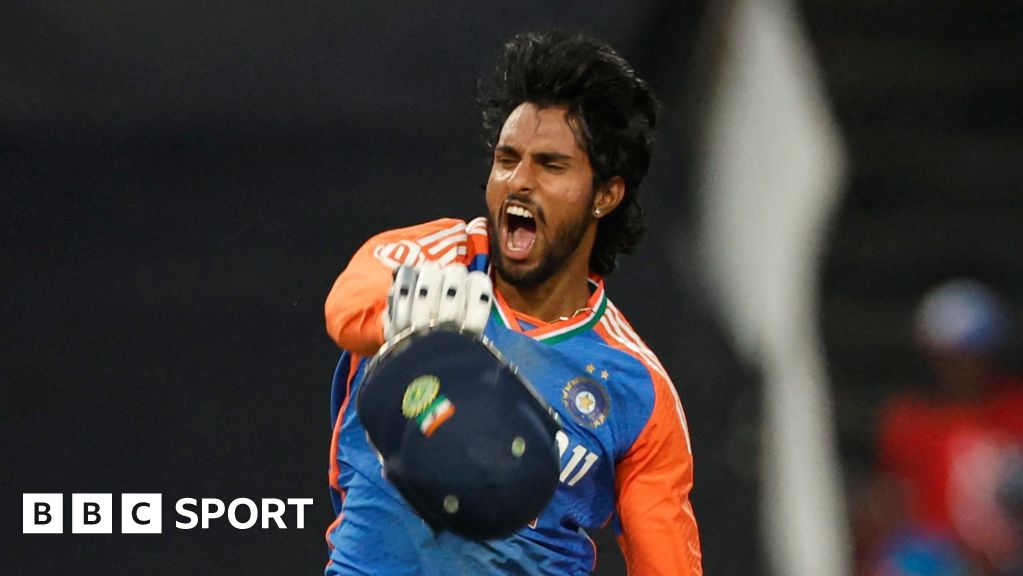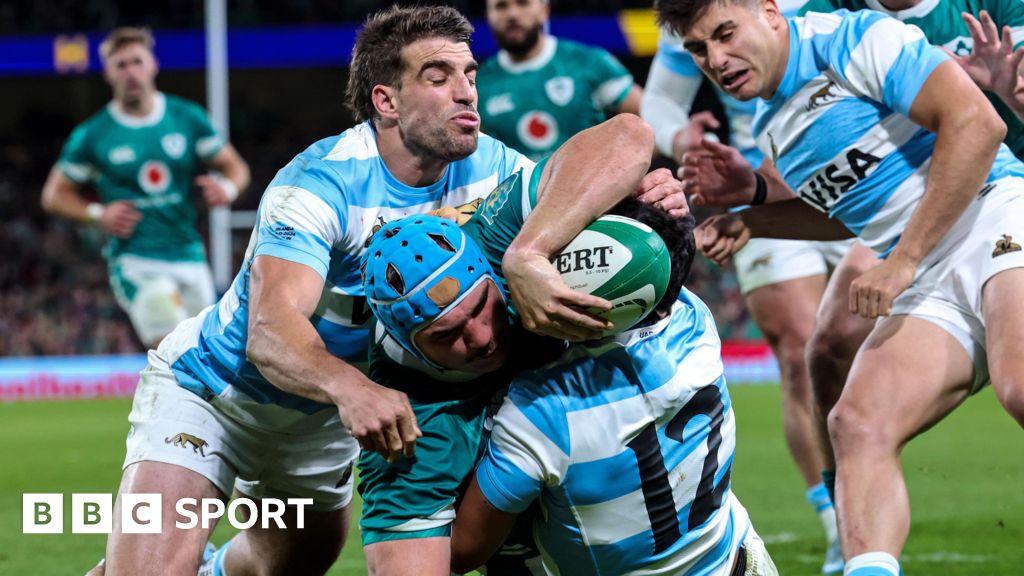| Venue: Flushing Meadows, New York Dates: 28 August-10 September |
| Coverage: Daily live text and radio commentaries across the BBC Sport website, app, BBC Radio 5 Live and 5 Sports Extra |
American hope Coco Gauff says she is telling herself it is still the beginning of the US Open as she tries to reach the final of her home Grand Slam tournament for the first time.
Sixth seed Gauff, 19, plays Czech 10th seed Karolina Muchova in Thursday’s women’s semi-finals in New York.
Belarusian second seed Aryna Sabalenka, yet to drop a set, meets American Madison Keys in the other semi-final.
“I have the mentality that I still have another two weeks to play,” Gauff said.
“I think that’s what I learned in the past of being in quarter-finals – before I would think I’m close to the end.
“Then obviously when it’s over, it’s over.”
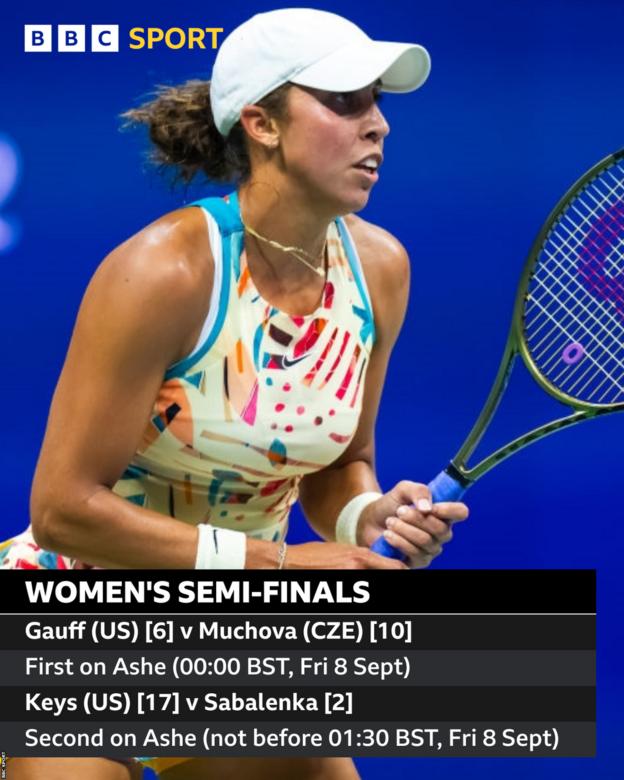
Gauff has enjoyed the best period of her career on the North American hard-court swing, coming into the US Open on the back of winning her biggest singles titles in Washington and Cincinnati.
She has continued to thrive in front of expectant home crowds, going one better than her quarter-final run at Flushing Meadows last year.
“I think what’s helping is playing from [Washington] DC to Montreal to Cincinnati, that was a long swing,” said Gauff.
“I think doing well in those tournaments built my mental endurance. I always had the physical endurance but it built my mental endurance.”
The improvements were evident at the US Open when she came from behind to beat German qualifier Laura Siegemund in the first round and Belgian 32nd seed Elise Mertens in the third.
“When you’re confident and clear in what you’ve got to do out there, it puts your mind at ease,” Jarmere Jenkins, part of Gauff’s new coaching team, told BBC Sport.
“Before I feel she was going out there and hoping to play well. Now she is going into a match thinking: ‘I’ve got this if I play well or even if I don’t’.
“She doesn’t always have to play great to win a match, a lot of matches she has won not playing her best tennis – but the best is going to come.”
Sabalenka ‘learning not losing’ from tough exits
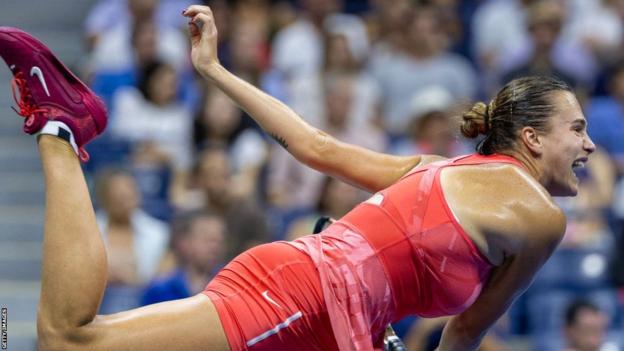
With most of the focus on Gauff, Sabalenka has been quietly and efficiently getting on with business in New York.
The 25-year-old, who won her maiden major singles title at the Australian Open in January, has not dropped a set on her way to the last four.
She is aiming for a first US Open final appearance, having reached the semi-finals for the third successive year.
Sabalenka lost to Muchova from a commanding deciding-set lead in this year’s French Open semi-finals, a tournament where she skipped open news conferences to protect her mental health and faced questions about Belarus’ involvement in Russia’s war in Ukraine.
She also lost from a set up against Tunisia’s Ons Jabeur in the Wimbledon semi-finals.
Bouncing back to reach the New York last four means she is the first women’s player to make the semi-finals of all four majors in the same season since Serena Williams in 2016.
“I had a couple of really tough losses this year, but we’re not losing: we’re learning,” Sabalenka said.
“I have really strong belief that all those tough matches I lost will help me in the future in other tough matches, other tough battles.
“I’m super proud of myself and my team that we have been able to adjust to different conditions, different courts. We were able to bring this consistency in my game. It’s unbelievable.”
The players trying to stop them
Muchova, 27, is aiming for a second Grand Slam final of the season after letting a deciding-set lead slip against Swiatek at the French Open.
Seeded 10th at the US Open, the Czech has enjoyed a renaissance this year after overcoming a series of injuries which threatened to end her career in 2022.
Muchova has already played Gauff on the US hard courts recently, losing in straight sets in the Cincinnati final.
Asked about her mentality before facing Gauff again, Muchova said: “I’m trying to keep things pretty easy and not put too many expectations on me.
“The key to the match for me is playing my own game. I don’t really want to say all the tactics, I’ll just focus on myself and try to bring the best out of me.
“I always feel that I’m a tough cookie in life as well. That helps with tennis.”
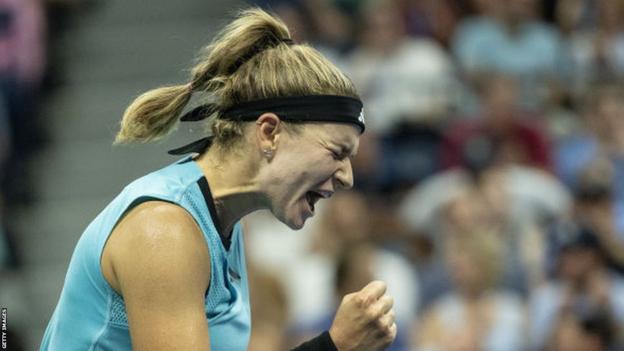
Keys, seeded 17th, is aiming for a return to the final after losing to fellow American Sloane Stephens in 2017.
After beating Wimbledon champion Marketa Vondrousova in the last four, 28-year-old Keys thanked the home crowd for helping her feel she could “get out of any situation”.
Keys will be hoping to channel the support when she meets Sabalenka, who beat her in straight sets at Wimbledon two months ago.
“In the second set at Wimbledon, I was up a break and I had chances. I was definitely in the match and had opportunities,” said Keys.
“I think even though I lost that match, it wasn’t like I wasn’t in the match and had no idea what I was doing out there.
“There are a lot of positives I can take out of that match and try to implement.”



